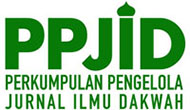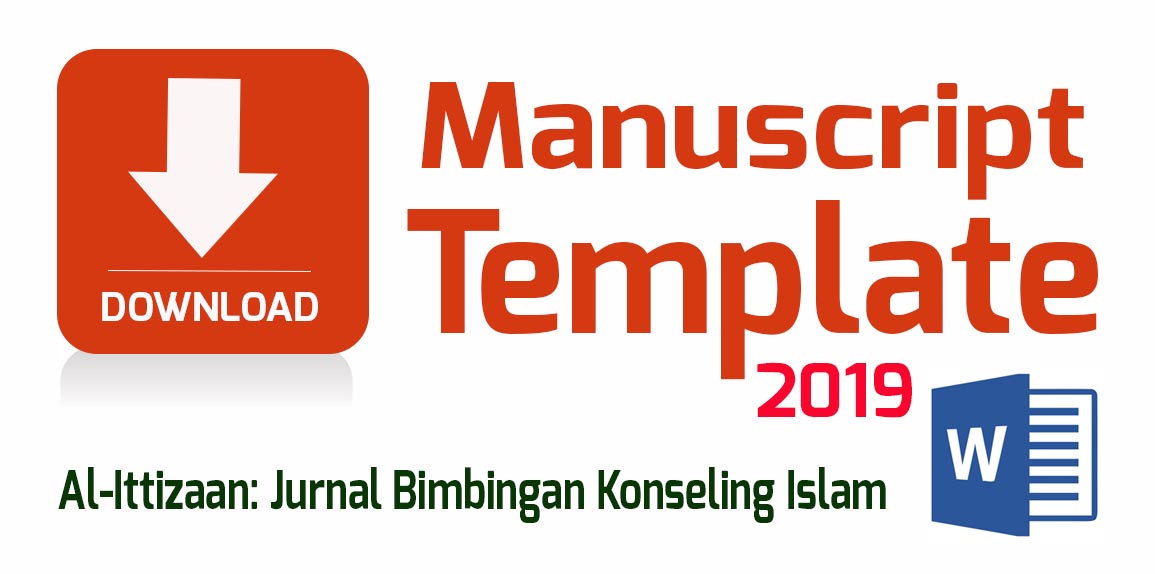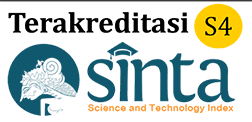Pemanfaatan Instrumen Tes dan Nontes Pada Layanan Konseling
Abstract
Keywords
Full Text:
PDFReferences
Ananda, Rusydi, and Tien Rafida. 2017. Pengantar Evaluasi Program Pendidikan. Cv. Pusdikra Mitra Jaya.
Arifin, Zainal. 2009. Evaluasi Pembelajaran. Vol. 118. Bandung: PT Remaja Rosdakarya.
Baldwin, Sally, Yu-Hui Ching, and Yu-Chang Hsu. 2018. “Online Course Design in Higher Education: A Review of National and Statewide Evaluation Instruments.” TechTrends 62(1):46–57.
Bazeley, P., and Kristi Jackson. 2013. “Perspectives: Qualitative Computing and NVivo.” Qualitative Data Analysis with Nvivo 1–46.
Brandão, Catarina. 2015. “ P. Bazeley and K. Jackson, Qualitative Data Analysis with NVivo (2nd Ed.) .” Qualitative Research in Psychology 12(4):492–94. doi: 10.1080/14780887.2014.992750.
Claro, Magdalena, David D. Preiss, Ernesto San Martín, Ignacio Jara, J. Enrique Hinostroza, Susana Valenzuela, Flavio Cortes, and Miguel Nussbaum. 2012. “Assessment of 21st Century ICT Skills in Chile: Test Design and Results from High School Level Students.” Computers & Education 59(3):1042–53.
Dipeolu, Abiola O., Cassandra Storlie, and Carol Johnson. 2014. “Transition to College and Students with High Functioning Autism Spectrum Disorder: Strategy Considerations for School Counselors.” Journal of School Counseling 12(11):n11.
Furtak, Erin Marie, Ruhan Circi, and Sara C. Heredia. 2018. “Exploring Alignment among Learning Progressions, Teacher-Designed Formative Assessment Tasks, and Student Growth: Results of a Four-Year Study.” Applied Measurement in Education 31(2):143–56.
Gladding, Samuel T. 2008. “The Impact of Creativity in Counseling.” Journal of Creativity in Mental Health 3(2):97–104.
Goodman-Scott, Emily, and Robert Carlisle. 2014. “School Counselors’ Roles in Creating and Implementing Social Stories to Serve Students with Autism Spectrum Disorder.” Professional School Counseling 18(1):2156759X0001800108.
Granello, Darcy Haag, and Mark E. Young. 2012. “Counseling Today.” Upper Saddle River, NJ.
Greenfield, Bruce H., Brenda Greene, and Marie A. Johanson. 2007. “The Use of Qualitative Research Techniques in Orthopedic and Sports Physical Therapy: Moving toward Postpositivism.” Physical Therapy in Sport 8(1):44–54.
Issenberg, S. Barry, William C. McGaghie, Ian R. Hart, Joan W. Mayer, Joel M. Felner, Emil R. Petrusa, Robert A. Waugh, Donald D. Brown, Robert R. Safford, and Ira H. Gessner. 1999. “Simulation Technology for Health Care Professional Skills Training and Assessment.” Jama 282(9):861–66.
Jawandi, Ahmad, D. Y. P. Sugiharto, and Imam Tadjri. 2016. “Efektivitas Bimbingan Kelompok Teknik Gamestorming Dan Teknik Token Economy Untuk Meningkatkan Kreativitas Siswa SMP Islam Diponegoro Surakarta.” Jurnal Bimbingan Konseling 5(2):78–85.
Judd, Belinda K., Justin N. Scanlan, Jennifer A. Alison, Donna Waters, and Christopher J. Gordon. 2016. “The Validity of a Professional Competence Tool for Physiotherapy Students in Simulation-Based Clinical Education: A Rasch Analysis.” BMC Medical Education 16(1):1–10.
Magdalena, Ina, Amelia Ismawati, and Sekar Ayu Amelia. 2021. “Penggunaan Evaluasi Nontes Dan Kesulitannya Di SD N Gempol Sari.” Jurnal Pendidikan Dan Ilmu Sosial 3(2):187–99.
Magdalena, Ina, Reni Putri Rahayu, Vira Nastita Aeni, and Maydanul Hifziyah. 2020. “Pengembangan Instrumen Tes Siswa Tingkat Sekolah Dasar Kabupaten Tangerang.” Jurnal Pendidikan Dan Ilmu Sosial 2(2):227–37.
Mohajan, Haradhan Kumar. 2017. “Two Criteria for Good Measurements in Research: Validity and Reliability.” Annals of Spiru Haret University. Economic Series 17(4):59–82.
Nystul, Michael Scott. 2015. Introduction to Counseling: An Art and Science Perspective. Sage Publications.
Robert, F. 1969. “Several Techniques and Types of Non-Test Data Are Available to a Counselor.” (1).
Roberts, Paula, and Helena Priest. 2006. “Reliability and Validity in Research.” Nursing Standard 20(44):41–46.
Rust, Jonathan P., Jonathan D. Raskin, and Melanie S. Hill. 2013. “Problems of Professional Competence among Counselor Trainees: Programmatic Issues and Guidelines.” Counselor Education and Supervision 52(1):30–42.
Schmidt, John J. 1999. “Counseling in Schools.” Needham Heights, MA: Allyn &Bacon.
Schmidt, John J. 2014. “Counseling in Schools : Comprehensive Programs of Responsive Services for All Students.” (1):352.
Widoyoko, Eko Putro. 2009. “Evaluasi Program Pembelajaran.” Yogyakarta: Pustaka Pelajar 238.
Winarno, Winarno, Yudi Muhtadi, and Much Alvin Aldiya. 2019. “Application of Learning Management Using Non-Test Instrument to Improve the Quality of Education.” Aptisi Transactions on Management (ATM) 3(1):46–56.
DOI: http://dx.doi.org/10.24014/ittizaan.v5i1.17180
Refbacks
- There are currently no refbacks.
Copyright (c) 2022 Al-Ittizaan: Jurnal Bimbingan Konseling Islam

This work is licensed under a Creative Commons Attribution 4.0 International License.
 Indexed By:
Indexed By:
Al-Ittizaan Journal is licensed under a Creative Commons Attribution 4.0 International License.








.png)


